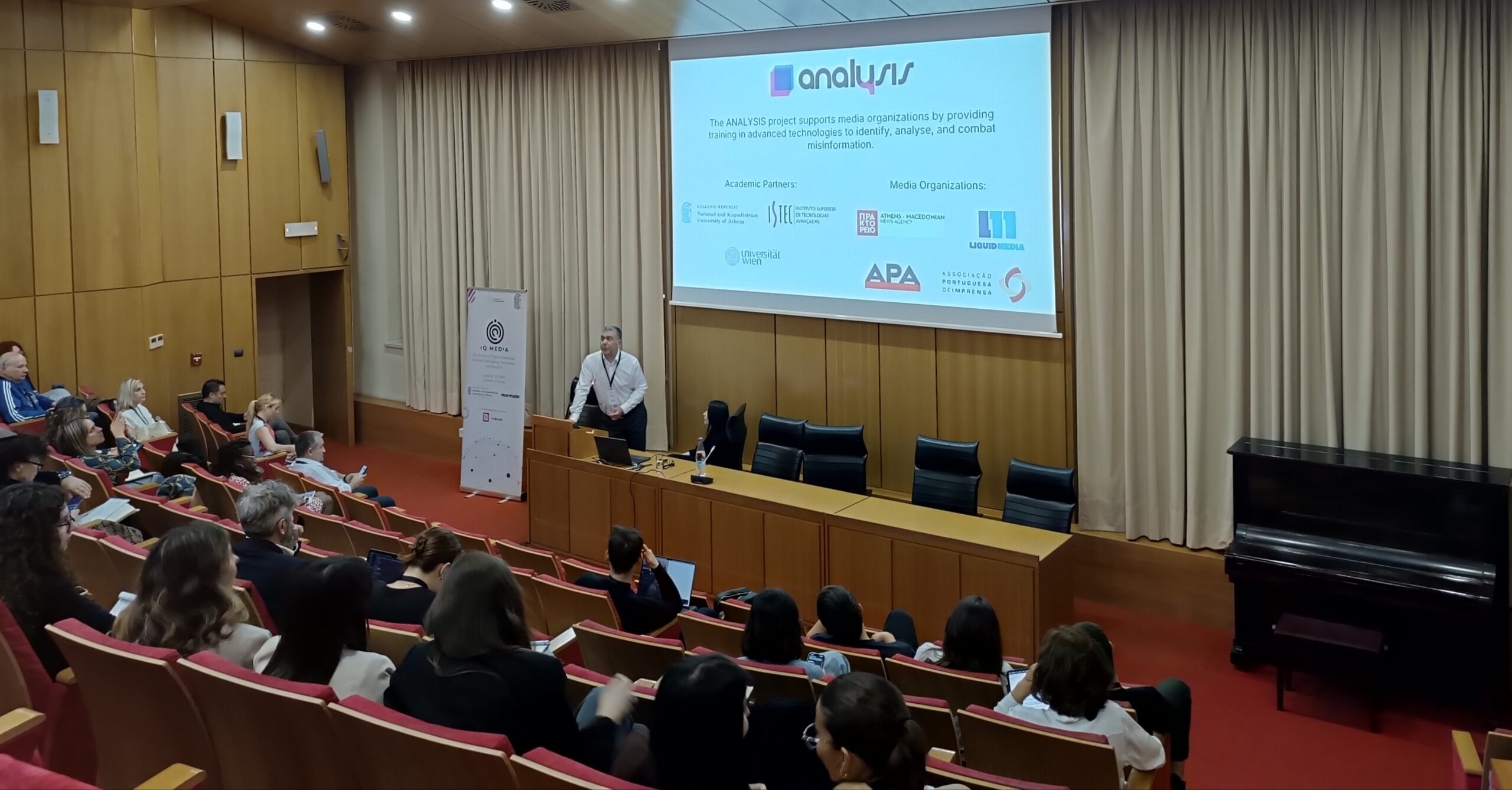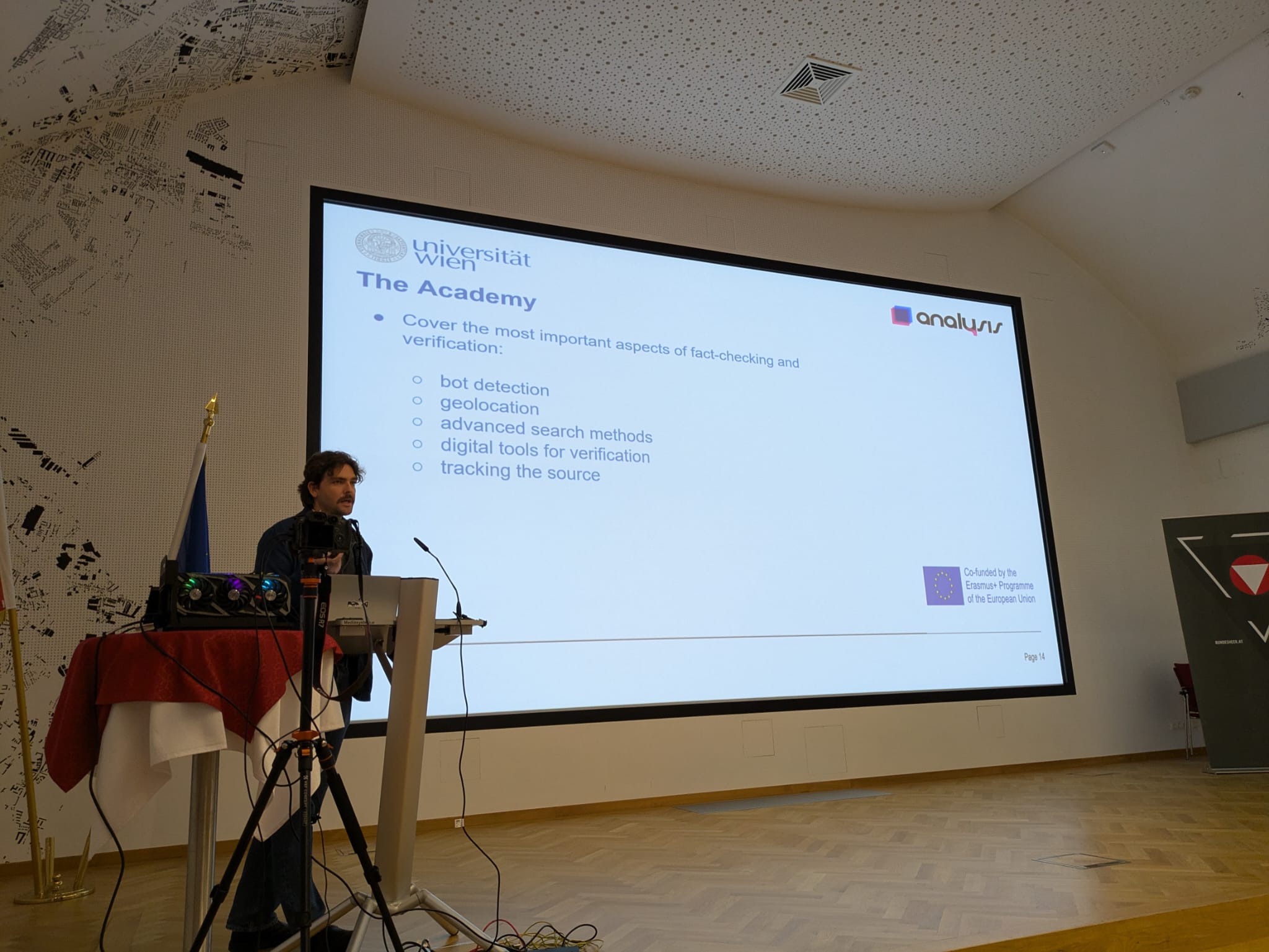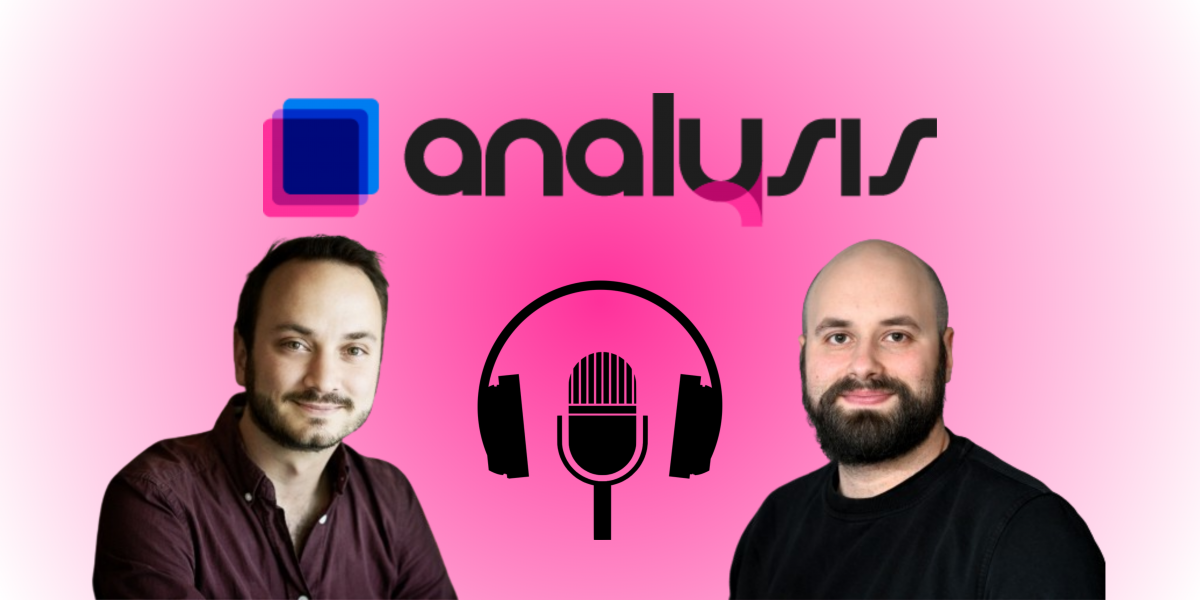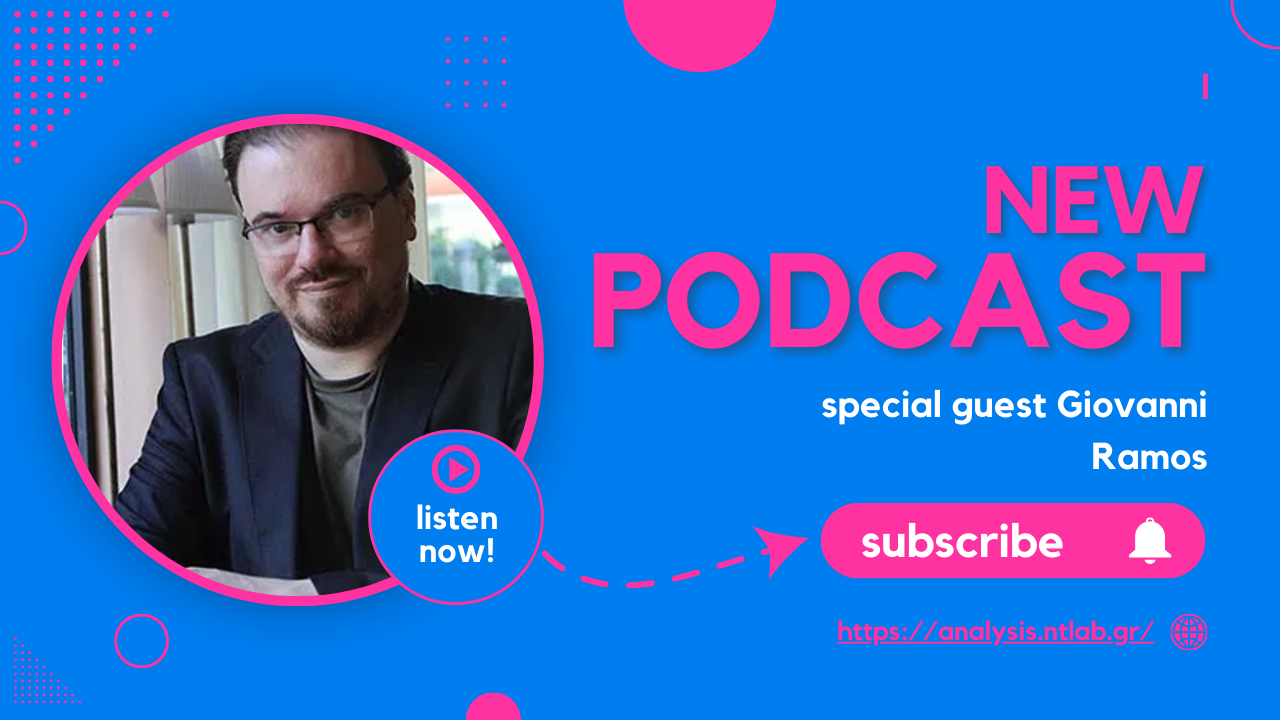The ANALYSIS project was presented at the second IQ Media Conference “The Future of Digital Journalism: Artificial Intelligence, Innovation, and Integrity”, held in Athens on April 14 and 15. The Conference was organized by the Laboratory of New Technologies of the Department of Communication and Media Studies at the National and Kapodistrian University of Athens, as part of the European project IQ Media. IQ Media is a knowledge-transfer Hub that aims to support the digital transformation of news organizations, uplevel the digital competencies of their employees, and lay the foundations for cross-border collaborations via the leverage of AI and Big Data.
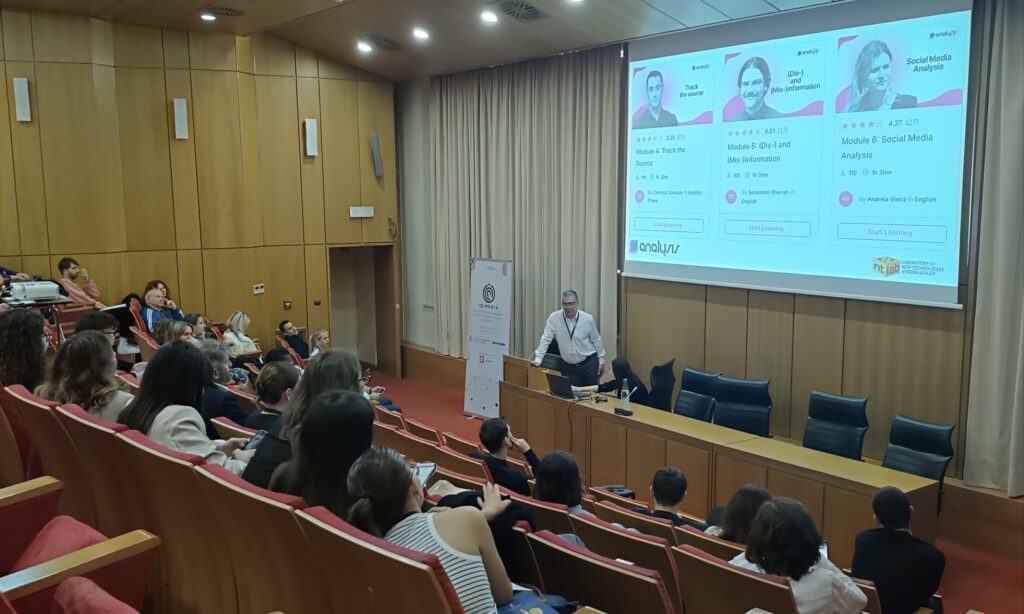
Project coordinators Professor Constantinos Mourlas and Dr. Catherine Sotirakou from the University of Athens presented the activities and objectives of the ANALYSIS project. They underlined its mission to empower journalists and media professionals with AI-powered tools that enhance their fact-checking skills by enabling the verification of news, images, events and locations. The coordinators also highlighted the project’s online courses, which are available to those interested in learning practical methods of fact-checking.
Additionally, consortium members Christos Gavalas (journalist and product manager at ATC), Aimilios Perdikaris (chairman of the board, Athens-Macedonian News Agency), and Giannis Dimitrellos (editor-in-chief at reader.gr, Liquid Media) participated in a panel discussion on “How to Fight Fake News and Disinformation in the Age of AI.” They were joined by Aliya Itzkowitz, manager at The Financial Times, and Olaf Steenfadt, founder and managing director at the Global Media Registry.
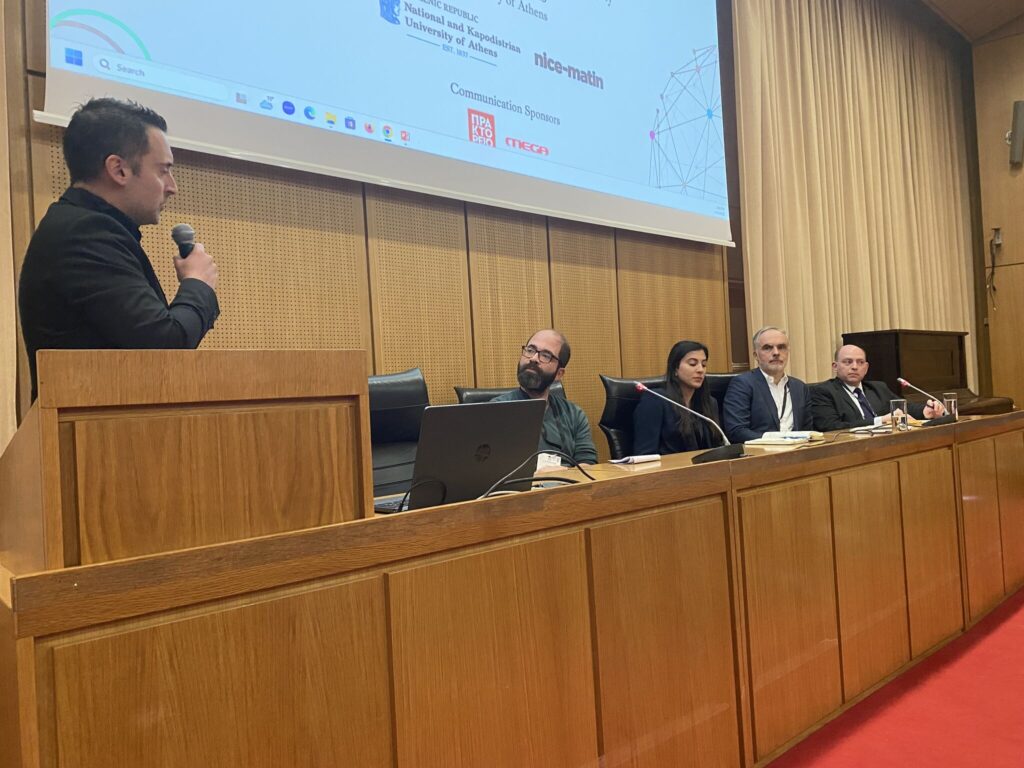
The discussion focused on how generative AI is not only transforming the way information is produced, but also the way it can be manipulated, posing new threats to public trust and democratic values. Panelists stressed the urgent need to preserve democracy, collectively highlighting the importance of on-the-ground reporting and transparency in the way news is created. They argued for a journalistic culture that reveals the “behind the scenes” of information production to rebuild trust with audiences.
Specifically, Aimilios Perdikaris described disinformation as both a problem and a challenge, underscoring the critical role of national news agencies in upholding journalistic standards. He stressed the importance of fundamental principles such as fact-checking and source verification, adding that “journalists should always have the final say before anything is published,” and underlined the value of critical thinking in navigating today’s media environment. He also pointed out the role of universities and journalistic associations in equipping professionals with the necessary skills through continuous training.
Giannis Dimitrellos also highlighted the importance of journalistic values, the search for truth and integrity. He noted that while AI provides valuable tools, journalists must be trained to question and evaluate the logic behind AI outputs, and concluded that the most effective way to fight fake news is through verification, direct engagement with sources, and in-depth research.
Aliya Itzkowitz drew attention to the decline in trust in traditional media, citing research showing that only 40% of people trust traditional news sources. She also referred to AI-generated visuals and videos as a major challenge for journalism, warning that the rise of creative content tools will further complicate the media verification landscape. Moreover, Olaf Steenfadt emphasized the need for protective layers between Big Tech platforms and consumers, such as AI agents and plugins, that operate with clear protocols and standards to ensure information integrity.
Misinformation was a central theme throughout the two-day event, which was attended by more than 100 media experts, academics, journalism professionals and students. Participants engaged in dynamic discussions about how AI and innovation are reshaping journalism, and how the media industry must adapt to protect integrity and promote truth in an evolving digital world.
